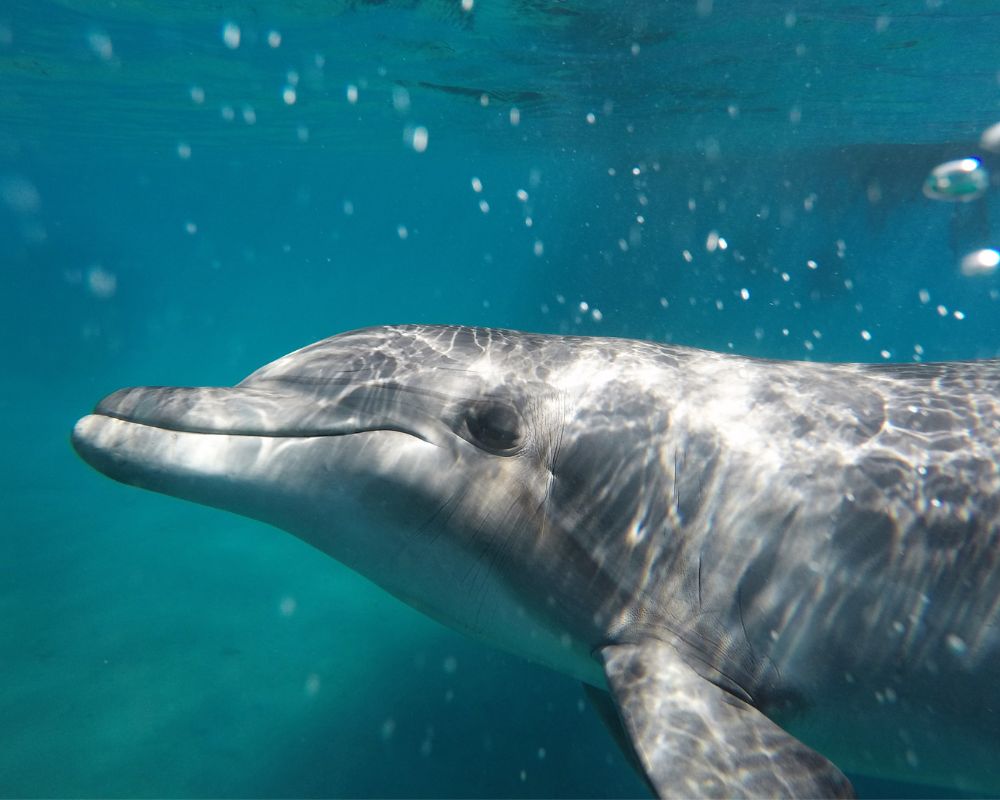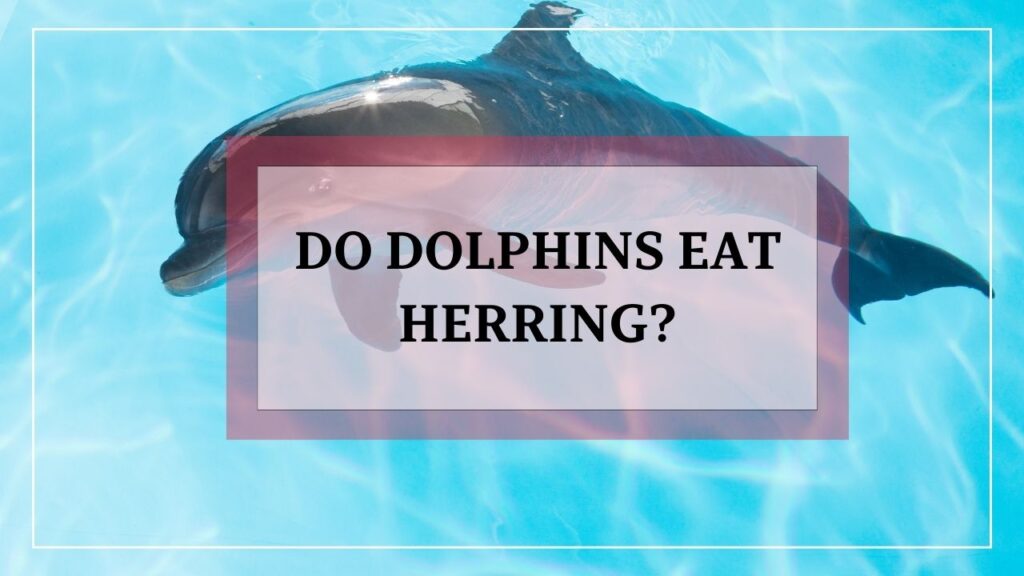Have you ever wondered if dolphins eat herring? If so, you’ve come to the right place. Herring is a small, oily fish that is an important part of the marine food web. Many marine species, including birds, whales, and seals, feed on herring.
But what about dolphins? These intelligent creatures have a varied diet, but do they include herring in their meals?
Dolphins are known for their playful and curious behavior, but they are also skilled hunters with a diverse diet. They are known to eat fish, squid, and even crustaceans. So, do dolphins eat herring? Let’s explore this topic in more detail and find out!
Do Dolphins Eat Herring?

Let’s cut to the chase – do dolphins eat herring? The answer is yes, they do! While dolphins have a diverse diet, herring is definitely on the menu.
Research has shown that dolphins are known to consume herring, along with other small, schooling fish. Herring is a nutritious food source for dolphins, as it is high in protein, fats, and other essential nutrients. However, the decision to eat herring is not always a simple one for dolphins.
So, what does it look like when a dolphin eats herring? Well, it’s not quite as simple as opening their mouth and swallowing the fish whole.
Dolphins are skilled hunters and use a variety of techniques to catch their prey. When it comes to herring, dolphins will often use a technique called “herding”.
This involves working together to create a wall of bubbles around a school of fish, trapping them in one place. The dolphins will then take turns swimming through the school of fish, picking off individual herring as they go.
If you’re lucky enough to see dolphins in the wild, you may be able to witness them eating herring firsthand.
One great place to see this is in the waters of Norway, where herring is a common prey item for dolphins.
Keep your eyes peeled for dolphins working together to catch their meal – it’s a fascinating sight!
Factors That Influence Dolphins’ Decision To Eat Herring
One of the most important factors is the abundance of herring in the dolphins’ environment. If there is a large population of herring in an area, dolphins are more likely to consume them.
This makes sense – if there are plenty of herring around, it’s easier and more efficient for the dolphins to hunt and catch them.
Another important factor is the size of the herring. Dolphins typically prefer smaller fish, as they are easier to catch and consume.
This is because smaller fish are more agile and can move quickly, making them harder to catch. However, smaller fish are also easier to swallow, making them a more efficient food source for the dolphins.
The season also plays a role in dolphins’ consumption of herring. Herring tends to migrate to different areas at different times of the year, so the availability of herring can vary depending on the season.
For example, in the North Sea, herring are more abundant in the summer months. This means that dolphins may be more likely to consume herring during this time of year.
Interestingly, the size and behavior of the dolphins themselves can also influence their decision to eat herring. Some researchers have found that larger dolphins are more likely to eat larger prey, such as herring.
Additionally, dolphins with more social connections may be more successful at hunting herring, as they can work together to corral and catch the fish.
Benefits and Risks of Eating Herring for Dolphins
First, let’s look at the nutritional benefits of herring for dolphins. Herring is a rich source of protein and contains essential vitamins and minerals, such as vitamin D and omega-3 fatty acids.
These nutrients are important for maintaining healthy body functions, such as digestion and immune system health. For dolphins, herring can be an important part of a balanced diet, helping to ensure that they get the nutrients they need to thrive in their environment.
However, there are also potential risks associated with herring consumption for dolphins. One concern is the presence of pollutants in the fish. Herring can contain heavy metals, such as mercury and lead, as well as chemicals like PCBs.
These pollutants can accumulate in the bodies of dolphins over time, leading to health problems like reproductive issues, immune system dysfunction, and neurological damage.
Another potential risk is the impact of herring fishing on dolphin populations. Commercial fishing for herring can result in a reduction in the available food supply for dolphins, which can have serious consequences for their survival.
Additionally, dolphins can become entangled in fishing nets or other equipment, leading to injury or death.
It’s important to remember that the relationship between dolphins and herring is complex, and there are both benefits and risks associated with the consumption of this fish.
As with any food source, it’s important to consider the potential risks and benefits when evaluating the impact of herring consumption on dolphin populations.
Conclusion
To summarise, in this blog post, we’ve explored the question of whether dolphins eat herring. We’ve learned that dolphins do indeed eat herring and that this fish can provide important nutritional benefits for these animals.
However, there are also potential risks associated with herring consumption, such as the presence of pollutants in the fish.
Additionally, the impact of herring fishing on dolphin populations must be carefully managed to ensure that the food supply for these animals is not threatened.

